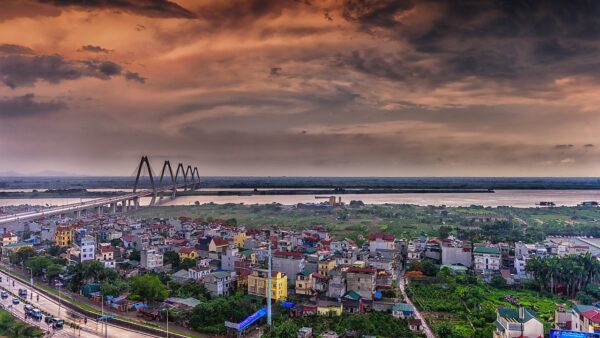Influential Chinese economist Justin Yifu Lin has said he is “delighted” that China is setting up the Asian Infrastructure Investment Bank (AIIB).
Speaking to GCR today, Lin (pictured), who was the World Bank’s chief economist from the start of the global financial crisis in 2008 until 2012, said Asia needs all the investment it can get.
He added that China had no option but to set up an alternative to Washington-controlled development funds such as the World Bank and the International Monetary Fund (IMF) because its influence in them has been restricted.
“I’m delighted to see China take this step forward,” he said. “It’s good for China, good for the developing world and good for the rest of the world. It’s a win-win for everybody.”
He said US concerns that the AIIB would not have adequately high standards were unfounded, as were concerns over a lack of transparency in the running of the nascent bank.
His comments came as South Korea announced today that it had decided to apply to join the AIIB, becoming the latest close US ally to sign up despite Washington’s misgivings.
Earlier this month the UK, France, Germany, Italy, Luxembourg and Switzerland applied to join ahead of the 31 March deadline, and Australia is expected seek membership as well.Â
Needs $800bn a year
Since 2009 Lin, now professor and honorary dean of the National School of Development at Peking University, has argued that the West should ramp up its investment in developing-world infrastructure for selfish reasons – to shore up the global economy for its own benefit.
“We have downward pressure in high-income countries and in the developing world,” he said. “Infrastructure investment is an effective counter-cyclical intervention because it increases demand, drives growth and reduces the need for unemployment benefits and so on. So it kills two birds with one stone, and it’s good for the short term and the long run.”
He cited a 2010 report by the Asian Development Bank (ADB) which said that $8 trillion was needed for infrastructure in Asia in the decade to 2020.
“It requires about $800bn every year and the funds from the current international development institutions can only meet maybe less than 10% of that,” he said. “Infrastructure development is a means of reducing the bottlenecks for growth in developing countries. There are so many bottlenecks and the more investment the better.”
As an example of Asia’s infrastructure needs, he said it can often cost less to ship cargo from Indonesia to New York than it does to ship cargo from one Indonesian island to another. “There are similar problems in many Asian countries,” he said.Â
Cash control
China has vast amounts of money to spend. Its foreign-exchange reserves stood at $3.89 trillion in October last year, which is more than triple the reserves held by any other country on the planet, according to Bloomberg.
Naturally it would like to use some of that cash to create advantages for itself. Dispensing loans for infrastructure is one way of increasing its influence in Asia while bolstering economic development in nearby countries, which in turn boosts demand for its goods and services.
Lin said China had two options.Â
One was to increase its contributions to the World Bank and affiliated lenders like the ADB. But China’s share of power in the Washington-controlled World Bank system has been restricted. While America’s share of voting power in various World Bank agencies stands at 16% or more, China’s share is less than 6%. (Japan’s share, the second largest, is around 9%.) Since World Bank decisions require at least 85% of members’ votes, the US, uniquely, can veto decisions.
Voting reforms proposed in 2010 have been stalled by the US Congress, leading to a five-year stalemate. For good reason, China will feel that the governance structure is unfair, and the anomaly grew even more glaring last year when the IMF pronounced that China’s economy, worth $17.6 trillion, had officially bumped America’s economy ($17.4 trillion) into global second place.
So the second option – and the only palatable one, Lin said – was for China to circumvent the “Washington Consensus” and set up an alternative.Â
Lax on corruption?
The US expressed concern about the AIIB on the grounds that it may not have the same standards as the World Bank and affiliated regional lenders, the implication being that the new bank would be more lax on corruption and environmental impacts.Â
Staunch US ally Japan, which has the controlling share of votes in the ADB, has also voiced concern. Japanese finance minister Taro Aso said this week that the AIIB governance structure is insufficiently transparent.
Lin dismissed these concerns. “First,” he said, “the AIIB has not yet been put into practice, so you cannot say it won’t follow the standards. Secondly, all the stakeholders in the AIIB would like it to be successful initiative. So any standards required for it to be successful will be adopted.”
As for transparency, Lin said that the new bank’s founder-member countries, set to number more than 30, will demand it. “How can anyone say it will not be transparent? It will have to be transparent,” he said.
As for what many feel to be the US’s real concern over the AIIB – China’s growing influence on the world stage – Lin said countries will need to accept the new reality.
“We are in a globalised world and dynamic development is the best way to change every country’s situation,” he said. “If infrastructure can help them grow dynamically then they can grow together with China. Otherwise, a country without dynamic economic growth will always be in a defensive position.”










